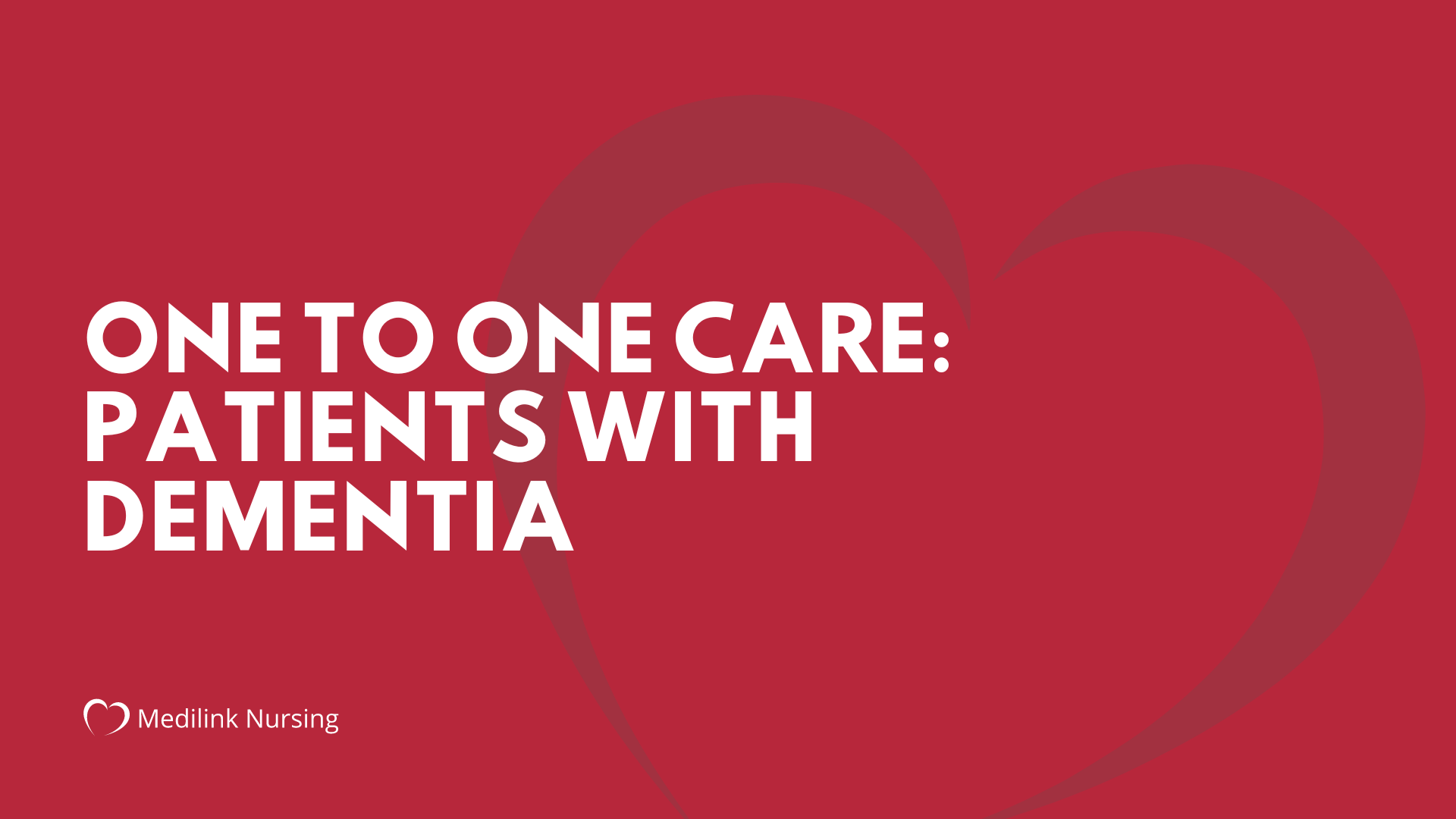How One to One Care Can Help Dementia Patients
One-to-one care is an approach to care that has been proven to be highly effective for patients with dementia. As the disease progresses, patients with dementia require more specialised care to ensure that they remain safe, comfortable, and engaged. In this article, we will explore the benefits of one-to-one care for patients with dementia and why it is an essential aspect of care.
What Is Dementia?
Dementia is a debilitating and often progressive condition that affects a person’s cognitive abilities, memory, and behaviour. This general term covers a wide range of conditions and can cause many different symptoms that vary from patient to patient. For more information on Dementia, we’ve linked a good resource here.

How Can One To One Care Be Beneficial To Patients With Dementia?
This approach to care is especially beneficial for dementia patients who may have difficulty communicating their needs, have behavioural challenges, or require specialised care. Additional care can help address these challenges and ensure that each patient receives the attention and support they need.
One of the primary benefits of closer care for patients with dementia is that it helps them feel more comfortable and secure. Patients with dementia may struggle with anxiety or fear in unfamiliar environments, and having a dedicated caregiver by their side can provide reassurance and comfort.
Further Benefits
Another benefit of one-to-one care is that it can help caregivers detect changes in a patient’s condition early on. With one-to-one care, caregivers can closely monitor patients for any changes in behaviour or physical symptoms, which can be an early indicator of an underlying health condition. Early detection can help prevent complications and ensure that patients receive timely medical attention.
Another benefit is that caregivers can provide personalised attention to each patient, ensuring that they are engaged, active, and stimulated. This can help prevent feelings of isolation or loneliness and provide patients with a sense of purpose and belonging. Additionally, helping patients maintain their independence for longer can improve their overall quality of life.
Challenges Of One To One Care
One of the challenges of 1-to-1 care is that it requires a dedicated caregiver to be present with each patient at all times. This can be challenging for healthcare facilities coping with limited staff or resources. However, the benefits of extra care for dementia patients cannot be overstated, and healthcare facilities must prioritise this approach to care.

How Medilink Nursing Can Help With Your Staffing Needs
Here at Medilink Nursing, we can offer high-quality agency staff to ensure everyone gets the care they need and deserve. By doing so, we can help you balance your staffing levels so that your residents have continuation of care. We understand that too many changes can be upsetting for residents, so we can offer regular agency staff who are trained in caring for patients with dementia. Why not get in touch with us today to discuss your current staffing needs.
Our team is available every day from 6:00am to 10.30 pm to take your call on, 0113 877 6383.
Alternatively, you can email us at care@medilinknursing.com, and we’ll get back to you right away.
In the meantime, if you’d like to find out more about the services we have available, why not read more on our dedicated employer’s page:
Medilink Nursing Employer information
If you want the stress taken out of finding cover for your staff, Medilink Nursing is here to help!
Summary
In conclusion, one to one care is a highly effective approach to care for dementia patients. It provides patients with personalised attention, improves their quality of life, and helps detect changes in their condition early on. While it may require additional resources and staff, the benefits of this care make it an essential aspect of dementia care. Care homes must prioritise one-to-one care to ensure that patients receive the attention and support they need to live a comfortable and fulfilling life.
Further Reading:
If you found this page useful, you might like to read our posts on:
Tips to help your residents get a good night’s sleep
5 great reasons to use care agency staff
Hire a nurse for a day, with Medilink

